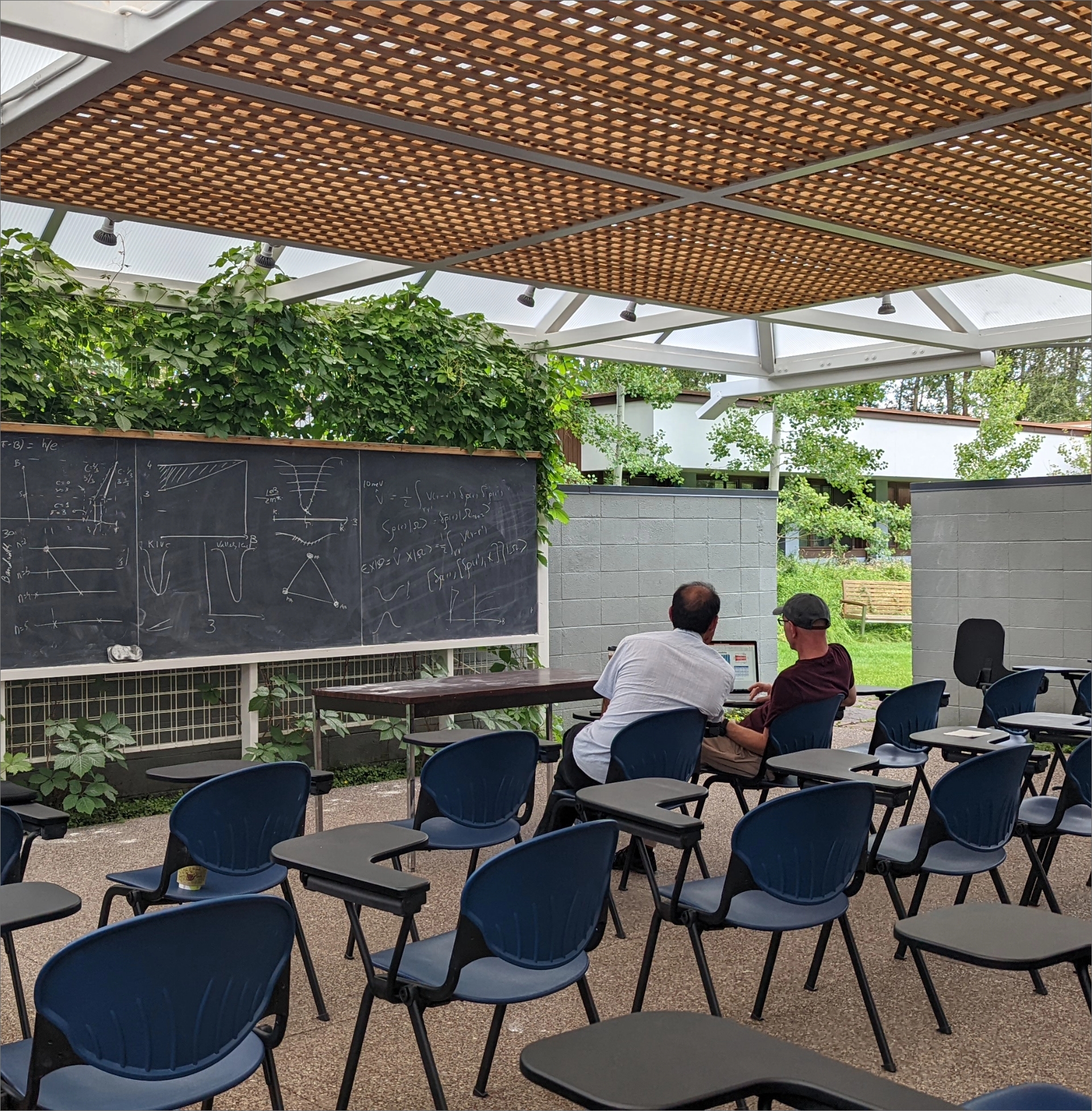
Summer Program
Ultra Quantum Matter: Synergy Between Theory and Experiment
July 27–August 17, 2025
Organizers:
Joseph Checkelsky, MIT
Debanjan Chowdhury, Cornell University
Yong Baek Kim, University of Toronto
Jie Shan, Cornell University
A number of recent breakthroughs in quantum materials research, both in traditional solid-state systems and in van der Waals heterostructures, have opened up exciting new opportunities in the field. Experts working on analytical field-theoretic and phenomenological approaches, state-of-the-art numerical methods, and novel experimental probes will bring together their complementary skill sets to find innovative solutions to some of the most pressing questions in the field. Some of the topics that will be covered are: two-dimensional quantum materials as a versatile platform for quantum “simulation” and realization of exotic phases of ultra-quantum matter; quantum spin-liquid and mixed-valence phases in quantum materials with transition and rare-earth elements that exhibit electron fractionalization; developments in computational many-body physics and quantum many-body theory to tackle the non-perturbative description of such fractionalized phases; and new experimental probes of these excitations.
The program will focus on pressing questions in both theory and experiment, that helps pave the way for a deeper understanding of fractionalization in correlated materials beyond the classic quantum Hall-like setting, and find new avenues for engineering quantum materials that exhibit fractionalization as well as probing them using new methods.
Summer Workshops
The summer program, running for 16 weeks from late-May to mid-September, emphasizes exciting open problems at the cutting edge. Two or three concurrent workshops, each with a specific focus selected for timeliness and the potential for breakthroughs and of two to five weeks in length, establish the main themes of each week, with twelve or thirteen different workshops each summer, balanced across fields including particle physics, string theory, astrophysics and hard and soft condensed matter physics, as well as emerging areas including biological physics, ultra-cold atom physics, quantum information, and physical mathematics. Additional researchers participate in small working groups or as individual researchers. This framework is designed to maximize informal interactions and free discussion within each area and to promote cross-fertilization between different areas via the common language of theoretical physics. Participation in the summer program of the Aspen Center for Physics is by application and subsequent invitation only. View past workshops.
